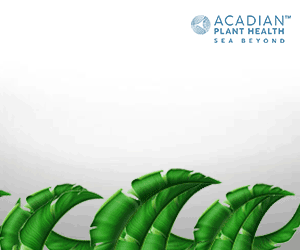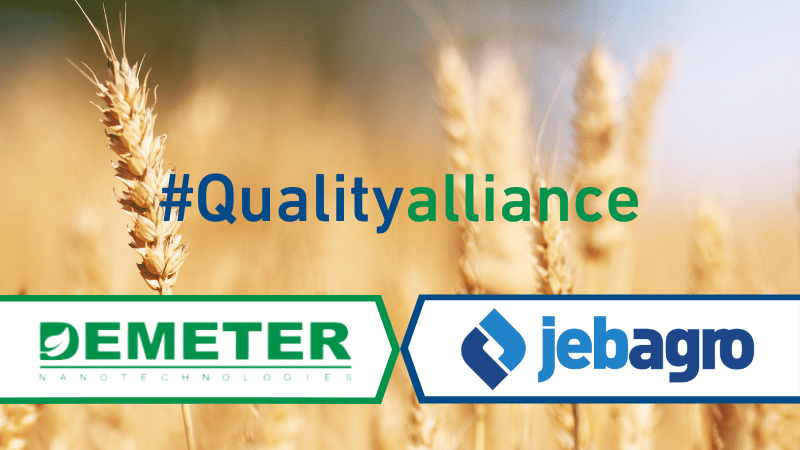South American Seaweed Extract Biostimulants Market Growing Fast
AgriBusiness Global recently caught up with Gustavo Gonella, Regional Marketing Manager for Latin America with Acadian Plant Health, to discuss the state of seaweed extract biostimulants market in South America. While Brazil continues to be a lead in adoption of biological products, Gonella talks about the challenges and successes of the region with biostimulants.
Join us at AgriBusiness GlobtalSM LATAM Conference on 14-15 May in Panama City, Panama, to learn more about biostimulants in LATAM. Register early to save and set the groundwork for generating new business and partnerships in Latin America! ABGLATAM.com

Gustavo Gonella, Regional Marketing Manager for Latin America with Acadian Plant Health
ABG: With Brazil looking to resource fertilizer and plant health products, what have you seen as far as biostimulant adoption from growers in that country?
Gustavo Gonella: South America’s seaweed extract biostimulant market comprises the countries of Brazil, Argentina, Chile, and the rest of South America. Brazil is the fastest-growing country in this region for this market. South America seaweed extracts biostimulant market is expected to reach USD 375.17 million by 2030, growing at the CAGR of 12.2% in the forecast period of 2023 to 2030.
In 2024, Brazil is expected to dominate the South American market. The changing crop protection market with manufacturers’ biological portfolios is rising and creating the demand for the seaweed extract biostimulant market. The volatile weather conditions and its impact on crop yield are driving the market for crop stress-managing biostimulants.
Companies are making partnerships to support sustainable food production and focusing on increasing the profitability of growers. Owing to this, the seaweed-based biostimulant is the best option for agricultural management practices aimed at reducing chemical inputs and increasing productivity.
ABG: What are some of the hinderances to biostimulant adoption in South America?
GG: Regulatory uncertainty is one. The biostimulant industry is still navigating through regulatory uncertainties, as definitions, classifications, and labeling requirements vary. This lack of uniformity can create challenges for manufacturers in ensuring compliance and clarity for end users.
Market fragmentation is another. The biostimulant market is characterized by a multitude of products with varying compositions and efficacy. This fragmentation poses challenges for farmers in selecting the most suitable products for their specific needs, hindering widespread adoption.
Lastly, cost considerations is a big issue. Some biostimulant products can be perceived as relatively expensive compared to conventional agricultural inputs. Convincing farmers of the long-term economic benefits and return on investment may be a challenge, especially in regions with tight profit margins.
ABG: Do you have any case studies of successes in that region?
GG: While the market is increasing CAGR of 12.2% in our region, Acadian Plant Health increased more than 30% per year in the last five years. In looking at our 2030 target, it will continue to increase.
Our core scientific understanding of ascophyllum nodosum and rigorous testing protocols ensure consistency of formulations for better management of abiotic stress and crop performance across the region. Our task as a market-leading company in seaweed technology is to help the market understand the benefits of this important asset for the current and future of high-performance agriculture.
ABG: How are biostimulants helping growers face drought and high temperature soils? Heavy rainfall?
GG: When applied to plants or soil, Acadian’s ascophyllum nodosum technology stimulates natural processes, improving water use efficiency, stress tolerance, and overall plant performance. Climate change brings about more frequent and intense abiotic stresses such as drought, salinity, and extreme temperatures. Acadian’s biostimulants help plants cope with these challenges by strengthening their natural defense mechanisms and improving resilience to these adverse conditions. Compounds like mannitol, polysaccharides, and betaines have shown to improve plant tolerance to heat stress and drought.
Acadian’s biostimulants contribute to the adaptability of crops to changing climate conditions. This adaptability is crucial for farmers facing unpredictable weather patterns, allowing them to maintain consistent yields despite environmental challenges.
ABG: What countries in South America are easiest to register biostimulants?
GG: Among the countries with specific regulations for biostimulants, Ecuador stands out. Ecuador is known for adhering to legal timelines set by the authority, providing a clear expectation of processing times.





